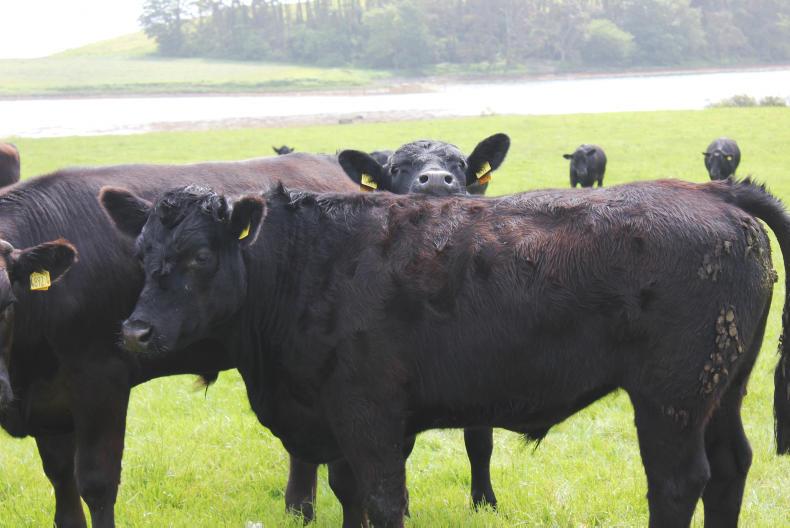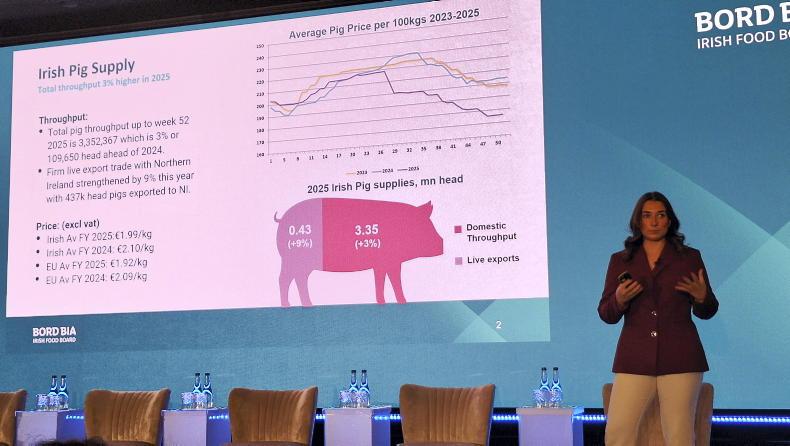In the 52 weeks to the 21 April 2019, figures from consumer insight company Kantar Worldpanel show that the tonnage of beef consumed in Britain was down 2.6%, with lamb down 5.7%.
So what is bringing beef and lamb volumes down? Price is a factor, as is our modern lifestyle, where people won’t take the time to prepare a roast of beef or lamb.
Marketing is also important, and if supermarkets wanted to sell more beef they probably could by using a series of price promotions and offers. NI farmers will also correctly point out that they have taken a 40p/kg hit in price this spring.
Is beef down in the shops to the same extent?
But the other issue to be thrown into the mix is that raised by Fane Valley chief executive Trevor Lockhart last week, when he suggested that the rise in veganism and flexitarianism (semi-vegan) is more than just a fad, and is now having an impact on consumption.
Anyone with children at school or college will be aware that eating a plant-based diet has become worryingly fashionable.
As livestock farmers, we are most at risk. Big business will go off and do other things, and we have already seen a number of local food companies chase the vegan consumer.
But farming in NI has limited options, given our predominant climate and terrain.
However, we do have a good story to tell around the health benefits of eating red meat, the importance of livestock in managing our environment and the low food miles involved in getting our product to market.
But we really need to up our game in telling this story to consumers. It is time for the Livestock and Meat Commission (LMC) to step up.
And if it needs more money to market NI beef and lamb, and help counter the vegan lobby, farmers and industry must not be found wanting – our futures are at stake.
Read more
US beef farmers not worried about plant-based alternatives
What is the EAT-Lancet commission?
In the 52 weeks to the 21 April 2019, figures from consumer insight company Kantar Worldpanel show that the tonnage of beef consumed in Britain was down 2.6%, with lamb down 5.7%.
So what is bringing beef and lamb volumes down? Price is a factor, as is our modern lifestyle, where people won’t take the time to prepare a roast of beef or lamb.
Marketing is also important, and if supermarkets wanted to sell more beef they probably could by using a series of price promotions and offers. NI farmers will also correctly point out that they have taken a 40p/kg hit in price this spring.
Is beef down in the shops to the same extent?
But the other issue to be thrown into the mix is that raised by Fane Valley chief executive Trevor Lockhart last week, when he suggested that the rise in veganism and flexitarianism (semi-vegan) is more than just a fad, and is now having an impact on consumption.
Anyone with children at school or college will be aware that eating a plant-based diet has become worryingly fashionable.
As livestock farmers, we are most at risk. Big business will go off and do other things, and we have already seen a number of local food companies chase the vegan consumer.
But farming in NI has limited options, given our predominant climate and terrain.
However, we do have a good story to tell around the health benefits of eating red meat, the importance of livestock in managing our environment and the low food miles involved in getting our product to market.
But we really need to up our game in telling this story to consumers. It is time for the Livestock and Meat Commission (LMC) to step up.
And if it needs more money to market NI beef and lamb, and help counter the vegan lobby, farmers and industry must not be found wanting – our futures are at stake.
Read more
US beef farmers not worried about plant-based alternatives
What is the EAT-Lancet commission?










SHARING OPTIONS